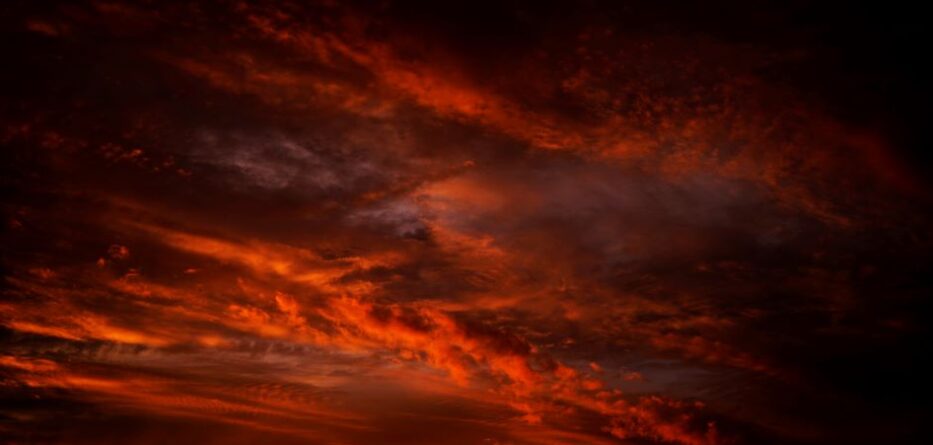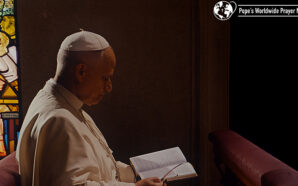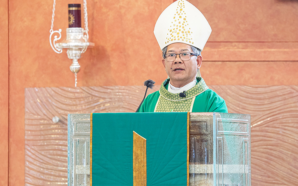Homily for the 27th Sunday in Ordinary Time
6 October 2024
Readings: Genesis 2:18-24; Psalm 127; Hebrews 2:9-11; Mark 10:2-16
There’s a lot going on in the Church and in the world this week. You will forgive me if I do not offer a reflection on the readings which relate to marriage and divorce.
Listen at https://soundcloud.com/frank-brennan-6/homily-61024
Today Pope Francis is going to the Basilica of Saint Mary Major in Rome to pray the rosary, interceding with Mary for the gift of peace in our war-torn world. He has invited all 368 voting members of the Synod gathered in Rome, as well as the 90 non-voting members, to join him. He has asked that tomorrow, the first anniversary of the Hamas terrorist attacks in Israel, all of us participate in a day of prayer and fasting for peace in the world.
None of us has the answers to the conflagration unfolding in the Middle East. No matter where any of us lays the blame, we all lament the loss of so many lives of innocent non-combatants whose homes, schools and hospitals are in close proximity to military targets in a style of warfare that no longer discriminates between the innocent children above ground and the combatants in tunnels below. Gone are the days when it was accepted by all sides that ‘If terrorists use other people as shields, then anti-terrorists have to find their way around the shields’.[1] Now in the Middle East, no innocent person is accounted as a shield, and thus no combatant feels any obligation to hold fire if they are unable to find a way around an innocent person who might in the past or in another place be considered a shield when in their home, school or hospital.
We Australian Catholics have one eye on our TV screens displaying the missiles firing across Israel, Gaza and Lebanon and the other eye on the synodal hall in Rome where yet again almost 500 church members have convened to discern what the Spirit is asking of us in the Synod on Synodality.
In his opening address at this second session of the Synod, Cardinal Grech said: ‘As we celebrate this Assembly, wars are being fought in many parts of the world! We are on the verge of a widening of the conflict. How many generations will have to pass before the warring peoples can once again “sit together” and talk to each other, to build a peaceful future together? We embrace the sisters and brothers present in the room who come from war zones or nations where the fundamental freedoms of peoples are violated. Through their voices we can hear the cries and tears of those who suffer under bombs, especially children, who breathe this climate of hatred. As believers we are called to desire and pray for the precious gift of peace for all peoples. We must always combine continuous prayer with credible witness.’[2]
As the UN machinery, the world’s superpowers and the world’s flashest diplomats fail us, we ask what could possibly be ‘credible witness’ in such a situation? Are we all paralysed as we wait for the latest escalation in hostilities, being prepared to debate only which one side is acting more disproportionately than the other, or which side has historically been more in breach of UN resolutions?
At the synod, Fr Timothy Radcliffe has continued to bring his English touch of profound learning, light humour and insightful storytelling. He spoke of the Dominican priory in Jerusalem which is situated near the Damascus Gate. ‘This is a tense place where the Old City opens onto the Arab quarter. A group of young Jews stood there, blindfolded, offering “free hugs” to anyone who wanted one. Gratuitous love in the face of the gratuitous hate. They took the risk that instead of a hug they might receive a knife.’[3]
Radcliffe honestly admitted how jaded many of us now feel with the protracted Synod on Synodality. In the 21st century, we seem to be constantly circling, avoiding any of the hot-button issues within the Church such as women[4], married clergy and gay rights, let alone the hot-button issues in our troubled world such as justice, peace, national sovereignty and human rights. It seems to have been so much simpler, urgent and more direct back at the time of the Council of Jerusalem as described in Chapter 15 of the Acts of the Apostles and in Paul’s Letter to the Galatians. The scripture scholars warn: ‘If the version in Acts cannot be taken as reliable in every respect, neither can that in Galatians. The discrepancies are many and the questions they pose real. Was there only one meeting, concerning which the sources disagree, or were there several? Do the sources refer to the same or different meetings? When Paul went up (after 14 years to Jerusalem) with Barnabas, did he go as part of an Antiochean delegation or in response to a “revelation” or both? Did he bring Titus along and was Titus among the anonymous “certain others”?’[5]
Scripture scholar Luke Timothy Johnson says that the underlying agreement between Acts and Galatians ‘enables us to state with considerable confidence that in the first decades of the Christian movement an important meeting was held concerning the legitimacy and basis of the Gentile mission; that participants included the leaders Paul and Peter and James and Barnabas; that certain agreements were reached which, in one way or another, secured the basic freedom of the Gentile initiative. The most striking agreement between the sources, in fact, comes at the religious level. With only very slight variation, both Luke and Paul agree that the basis of the mission to the Gentiles was a matter of God’s gift, and that God was equally at work in the apostle Paul as he was in the apostle Peter.’[6]
Is it too much to hope that in these next few weeks we might have a renewed sense of God’s gift to us – our mission to those on the peripheries and to those cheated justice, peace and life itself?
In his first meditation for this assembly, Timothy Radcliffe took as his text: ‘Early on the first day of the week, while it was still dark, Mary Magdalene came to the tomb’. Reflecting on the state of our war-torn world and of our diminishing Church, Radcliffe said, ‘This is where we too are today. Our world is even more darkened by violence than a year ago. She comes looking for the body of her beloved Teacher. We too are gathered in this Synod to search for the Lord. In the West, God seems to have largely disappeared. We are faced not so much by atheism as a pervasive indifference. Scepticism poisons the hearts even of many believers. But all Christians everywhere are searchers for the Lord, like Mary Magdalene before dawn. We too may even feel in the dark. Since the last Assembly, so many people, including participants in this Synod, have expressed their doubts as to whether anything is going to be achieved. Like Mary Magdalene, some say, “Why have they taken away our hope? We expected so much from the Synod, but perhaps there will be just more words.”’[7]
At the opening mass for this assembly of the Synod, Pope Francis said: ‘Brothers and sisters, we begin anew our synodal path with an eye toward the world, since the Christian community is always at the service of humanity in order to announce the joy of the Gospel. In such a dramatic time in our history, when the winds of war and the flames of violence continue to devastate entire peoples and nations, there is need for this message.’[8]
As the missiles continue to fly across national boundaries in the Middle East and as innocent non-combatants continue to die in their thousands, we must combine continuous prayer with credible witness, bringing a message of peace and inclusion to all those on the peripheries of our Church and to those who are no longer shielded by international law, diplomacy, or discriminating restraint.
Let’s join with Fr David Neuhaus SJ, the Israeli Jewish priest living in Jerusalem who, calling to mind ‘Palestinians, Israelis, Lebanese, children, women and men caught up in a grinding machinery of death as the world looks on, mouthing empty slogans and pious wishes’, continues to pray: ‘Most of it is lamentation and raging at the heavens. And with the heavenly choir, I call out, “How long will it be?” (Revelation 6:10).’[9]
Since the start of 2024, Fr Frank Brennan SJ has been serving as part of a Jesuit team of priests working within a new configuration of the Toowong, St Lucia and Indooroopilly parishes in the Archdiocese of Brisbane.
Frank Brennan SJ is a former CEO of Catholic Social Services Australia (CSSA). His latest book is An Indigenous Voice to Parliament: Considering a Constitutional Bridge, Garratt Publishing, 2023 and his new book is ‘Lessons from Our Failure to Build a Constitutional Bridge in the 2023 Referendum’ (Connor Court, 2024).
[1] Michael Walzer, Thinking Politically, Yale University Press, 2007, p.276
[2] See https://www.vaticannews.va/en/vatican-city/news/2024-10/synod-cardinal-mario-grech-opening-address-full-text.html
[3] See https://www.vaticannews.va/en/church/news/2024-09/synod-retreat-meditation-the-locked-room.html
[4] See https://cruxnow.com/vatican/2024/10/as-synod-opens-vatican-says-no-to-women-deacons
[5] Luke Timothy Johnson, The Acts of the Apostles, Sacra Pagina Series, Volume 5, Liturgical Press, 1992, p. 269.
[6] Ibid, 270.
[7] See https://www.vaticannews.va/en/pope/news/2024-09/synod-retreat-meditation-resurrection-searching-in-the-dark.html
[8] See https://www.vatican.va/content/francesco/en/homilies/2024/documents/20241002-omelia-angeli-custodi.html
[9] The Tablet, 5 October 2024, p. 7.








